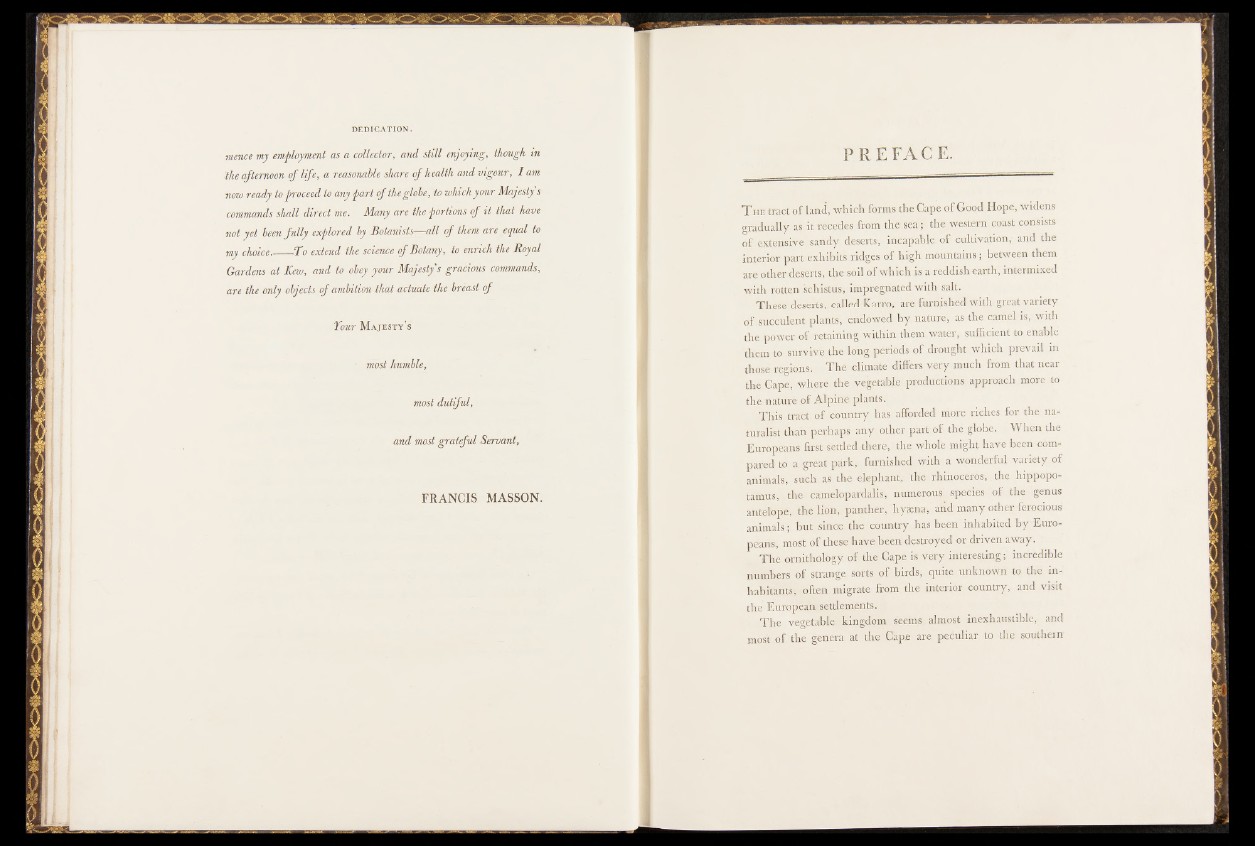
mence my employment as a collector, and still enjoying, though in
■the afternoon of life, a reasonable share of health and vigour, I am
now ready to proceed to any part of the globe, to which your Majesty s
commands shall direct me. Many are the portions of it that have
not yet been fully explored by Botanists—all of them are equal to
my choice___ T o extend the science of Botany, to enrich the Royal
Gardens at Kew, and to obey your Majesty's gracious commands,
are the only objects of ambition that actuate the breast of
Your Majesty’s
• most humble,
most dutiful,
and most grateful Servant,
FRANCIS MASSON.
PREFACE.
T he tract of land, which forms the Cape of Good Hope, widens
gradually as it recedes from the sea ; the western coast consists
of extensive sandy deserts, incapable of cultivation, and the
interior part exhibits ridges of high mountains; between them
are other deserts, the soil of which is a reddish earth, intermixed
with rotten schistus, impregnated with salt.
These deserts, called Karro, are furnished with great variety
of .succulent plants,,'endowed by nature, .as the camel is, with
the power of retaining within them water, sufficient to enable
them to survive the long periods of drought which prevail in
those regions. The climate differs very much from that near
the Cape, where the vegetable productions approach more to
the nature of Alpine plants.
This tract of country has afforded more riches for the naturalist
than perhaps any other part of the globe. When the
Europeans first settled there, the whole might have been compared
to a great park, furnished with a wonderful variety of
animals, such as the elephant, the rhinoceros, the hippopotamus,
the Camelopardalis, numerous species of the genus
antelope, the lion, panther, hyaena, arid many other ferocious
animals; but since the country has been inhabited by Europeans,
most of these have been destroyed or driven away.
The ornithology of the Cape is very interesting; incredible-
numbers of strange sorts of birds, quite unknown to the inhabitants,
often migrate from the interior country, and visit
the European settlements.
The vegetable kingdom seems almost inexhaustible, and
most of the genera at the Cape are peculiar to the southern